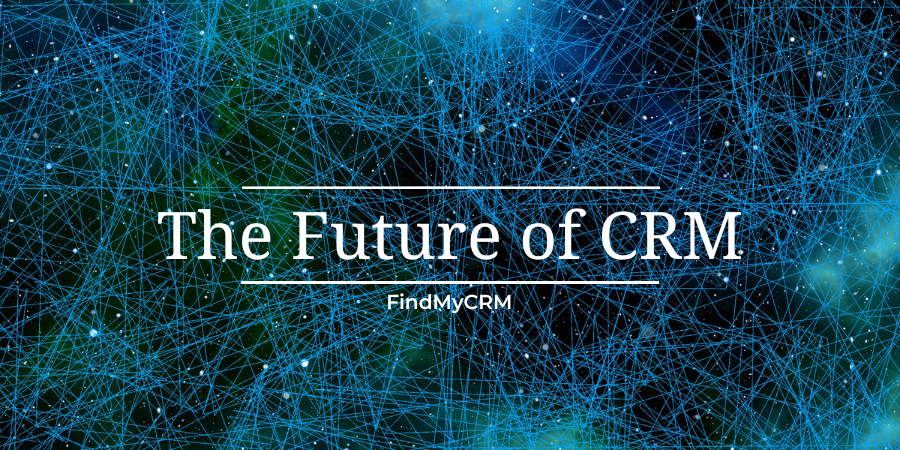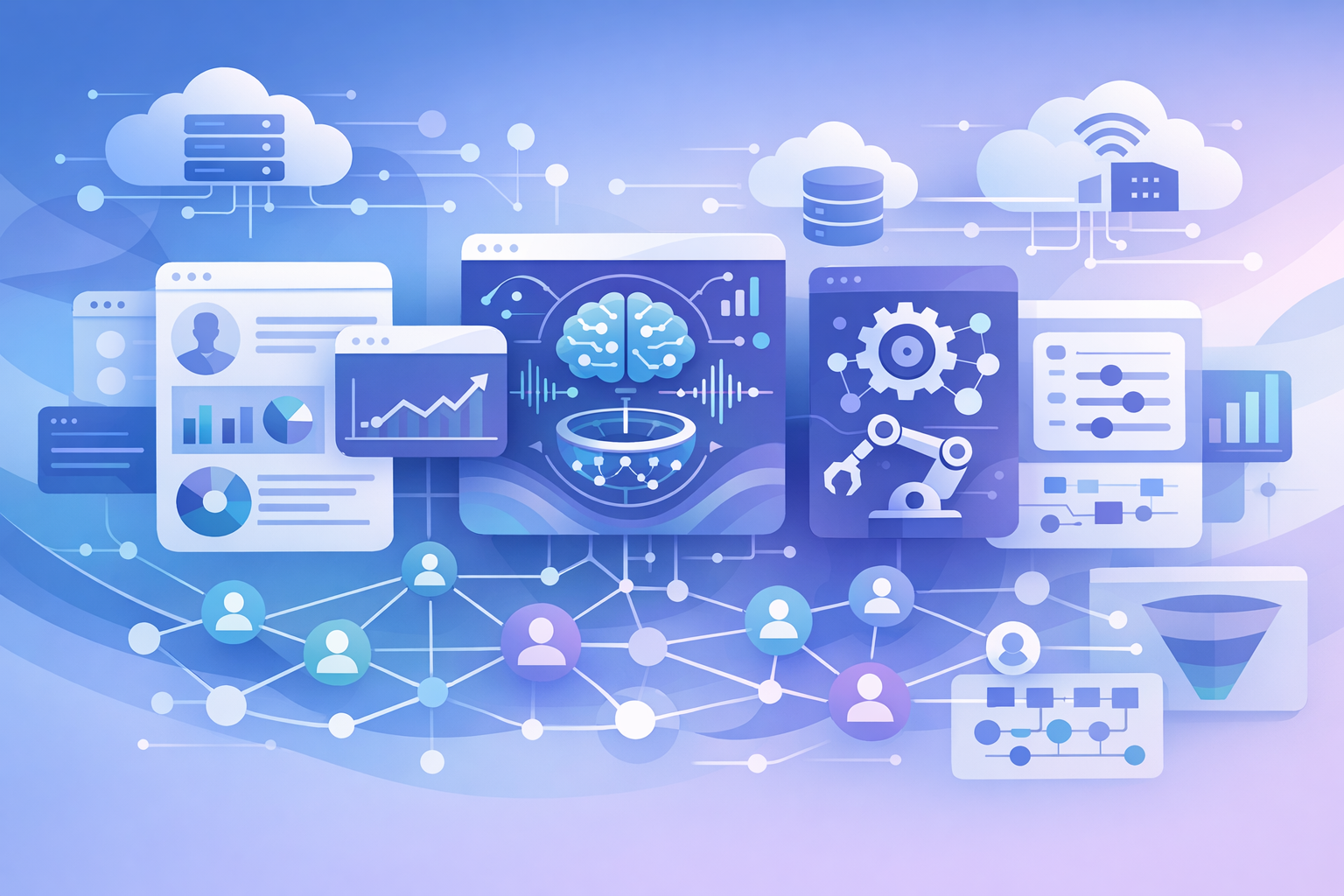12 Future Trends In CRM
CRMs have been essential in assisting businesses with managing customer data and streamlining the entire sales cycle from a single location.
The leading CRM solutions are:
However CRM software is always changing, just like almost every other industry. Let's look more closely at some of the CRM trends of the future and how you can get ready for them.
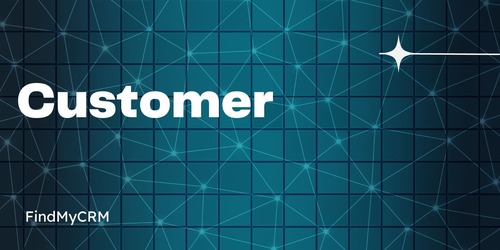
1. More personalized client interactions
Customers now have different expectations. Putting an effective personalization strategy into practice is easier said than done. In reality, many marketing professionals find it difficult to provide their clients with personalized experiences.
CRM's capabilities in the future will enable mass personalization. You will be able to customize your messaging to specific clients using the information and insights you are already gathering.
For instance, when a visitor expresses interest in a certain product, you may set up a drip campaign to send customized offers rather than generic emails. Your messages will become more impactful and more relevant as a result.
[Related Article: What is Customer Service? Definition, Types, and Benefits]
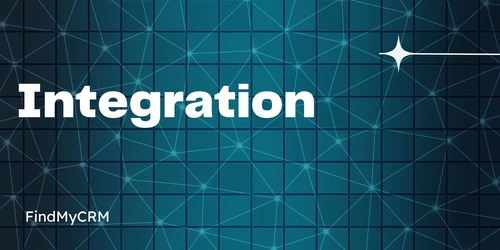
2. More seamless channel integration
Teams don't see the complete picture when data is stored in silos, which might affect their ability to make the right decisions. As a result, decision-makers usually have to switch between several applications to better grasp their data. This can also hinder teamwork and reduce productivity.
In order to provide a single source of truth for marketing, sales, and customer service, integrated CRM solutions are now available and will continue to offer deeper integrations with other systems.
With this CRM innovation, your staff won't need to look up information several times when they use a single platform. They will be able to work more effectively and provide customers with more engaging experiences.
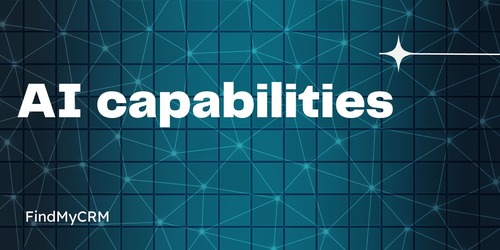
3. Improved AI capabilities
Artificial intelligence (AI) will be used by more CRM systems to support business strategies. AI enables businesses to make quicker and more informed decisions by using vast amounts of unstructured data.
Major market leaders are already demonstrating this to us. For instance, Salesforce Einstein is an AI designed for their cloud-based CRM. It analyzes data from many sources using AI to forecast where new leads will come from. Customers can also use it to fix problems on real-time channels like chat.
Businesses in the U.S. are expected to gain an estimated $394 billion over the next five years because of the increasing use of AI in CRM. As CRMs become more complex, that figure will keep rising.
CRMs become smarter and more powerful with this latest trend in CRM. AI improves forecasting, finds new opportunities, and assists your team in making smarter choices.
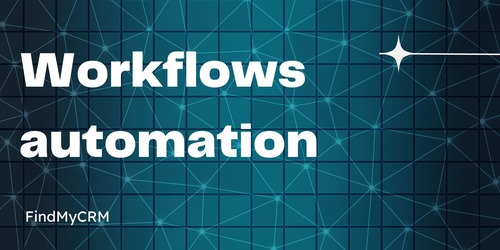
4. More powerful automation workflows
Employees spend less time on the skilled work for which they were employed because they spend a large amount of their time on "work about work" – activities such as clarifying work details, looking for documentation, updating spreadsheets, etc.
Sales and marketing teams have less time for more strategic work like analyzing different markets and creating new campaigns when they spend time on "work about work" tasks.
For instance, you can set up automated email workflows to nurture your leads with marketing automation. Based on particular actions, you can even segment your contacts and send them customized follow-ups.
Another illustration is the use of automation to recover abandoned carts, which occur when a customer adds a product to their cart but does not finish the transaction.
You can recover more lost sales by using an automated email series to gently encourage customers to visit your website or entice them with a coupon.
Future CRM trend includes businesses automating more of their marketing and sales operations. This will not only help close more deals, but it will also free up staff members to concentrate on work that has a higher value.
[Related Article: The Best Marketing Automation Software & Platform]
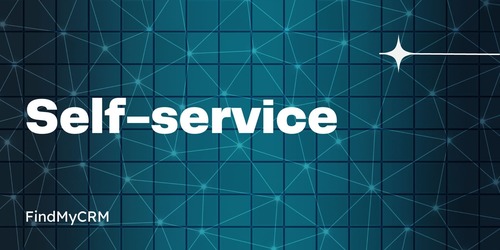
5. More self-service possibilities
Customers are increasingly choosing to troubleshoot and solve problems on their own because it is frequently much faster than contacting customer service.
Consumers now expect brands to offer a self-service online portal. You make it simpler for clients to find information fast by providing a self-service portal. Community forums, knowledge bases, and FAQ pages are the most popular forms.
However, the majority of self-service portals are standalone. They don't integrate with other systems, which limits a company's visibility into the problems that customers are facing.
The growing integration of self-service systems will be a real future CRM. One instance is the use of chatbots, which let clients ask about products, check the status of their orders, and even receive personalized offers.
A CRM platform also allows teams to view a contact's previous interactions and use that information to predict their future needs. For instance, a customer service person can get in touch with accounts that have viewed a cancellation page and try to keep them.
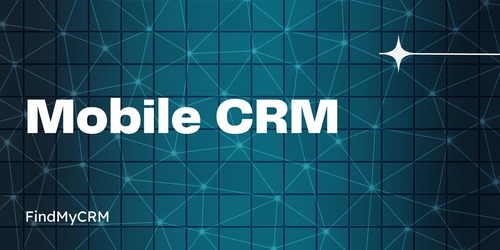
6. Increased use of a mobile CRM
As the usage of mobile devices continues to grow, it is becoming increasingly common for businesses to adopt the use of a mobile CRM. This is not surprising considering the convenience and flexibility that mobile devices offer. With a mobile CRM, your sales, marketing, and customer service teams can easily access customer data and work effectively, all without being restricted to a PC.
The ability to access a mobile CRM empowers your teams to stay connected and productive while on the go. Whether they are attending meetings, traveling, or working remotely, they can have instant access to important customer information, update records in real-time, and collaborate seamlessly with their colleagues.
This mobile accessibility eliminates the constraints of being tied to a desk or office, allowing your teams to be more agile and responsive in their interactions with customers. They can quickly respond to inquiries, address customer concerns, and provide the necessary support, regardless of their location.
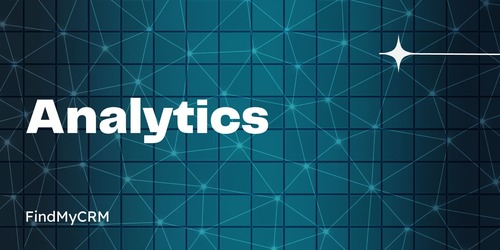
7. Better CRM analytics features
Organizations are in the best position to find issues, solutions, and opportunities if they have access to advanced analytics. Companies are increasingly looking for strong analytics solutions that are one of the customer relationship management trends to analyze and report on their data in real-time.
CRMs must also provide advanced analytics. Businesses want the most accurate picture of how their sales funnel is working, how satisfied their customers are, and what is causing churn.
Despite the fact that not all businesses are prepared for sophisticated standalone analytics tools, more SMEs are viewing CRM analytics as a must-have, not a nice-to-have.

8. Everything as a Service, or XaaS.
What is XaaS? Software as a service is a well-known term. The phrase "Everything as a Service" expands the idea of SaaS to include all types of services and products.
Any IT function, including platform as a service (PaaS) and infrastructure as a service (IaaS), among many others, can be turned into a service for enterprise consumption using XaaS. Any computer service that is provided via the internet and is paid for through a subscription as opposed to an up-front cost is included in XaaS.
As a tech trend, we forecast that more companies will look to the cloud for solutions in fresh areas of their business whether as a component of their CRM, a standalone system, or a connected tool.
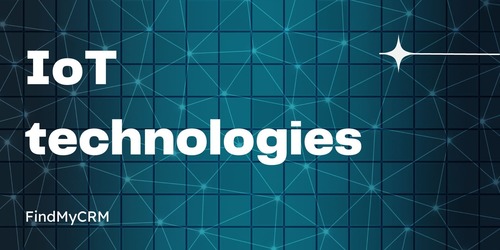
9. CRM and IoT technologies are getting more integrated.
If you want to know the future of CRM by 2025, so there will likely be more than 64 billion IoT devices in use worldwide, ranging from smart home appliances to wearable health monitors and cybersecurity scanners.
This is also true for businesses: 93% of companies are expected to have adopted IoT technology in 2019, according to Fierce Electronics, and this trend will only grow in the upcoming years. This includes basic IoT gadgets like smart appliances and energy meters as well as more sophisticated solutions for improved organizational capabilities, supply chain visibility, and cost savings.
The majority of businesses use data from IoT solutions to improve the customer experience. IoT technology enables businesses to monitor and provide for their customers in new, proactive ways that were previously unimaginable.
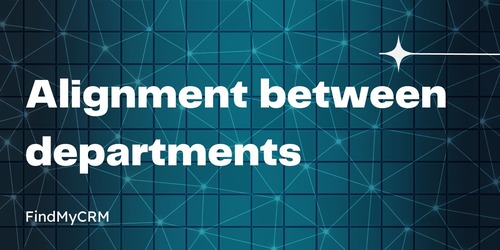
10. Better alignment between departments of the CRM system
One of the more urgent and frustrating issues that almost every business faces are the ineffective alignment of sales and marketing. Disconnects across departments about KPIs, short-term goals, and long-term objectives are frequent.
Both the sales and marketing departments need to be working together smoothly if you want to maximize your efforts. Marketing must generate the quantity and quality of leads that sales can eventually use.
That type of synchrony may best be achieved when both departments use the same CRM strategy as a base. When it comes to using one of these platforms, every company adopting it must get support from both sales and marketing.
When successfully implemented, a strong CRM strategy that all departments are on board with minimizes friction at almost every point of contact, resulting in a smoother, more successful sales funnel and more informed sales and marketing efforts.
[Related Article: What are the functional & technical features of CRM software?]
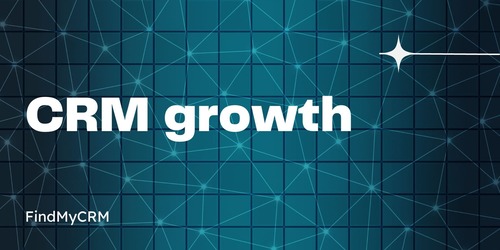
11. New markets will drive CRM growth
The four markets that traditionally represent the majority of CRM buyers are real estate, consulting, distribution, and insurance. As we move deeper into the 2020s, a great deal of new CRM growth will come from other vertical markets. CRM of the future will consist of:
- Finance
- Manufacturing
- Healthcare
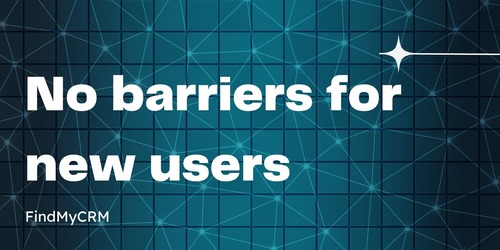
12. There are fewer barriers for new CRM users
According to the LinkedIn State of Sales, 97% of sales professionals believe sales technology is "extremely important" or "important," and 65% of sales professionals use a CRM.
One-third of sales representatives are still not using CRMs, however. Concerns about cost and a lack of resources and technical skills to implement a CRM system are common barriers to adoption.
These concerns are becoming less critical as CRMs continue their trend of getting cheaper, simpler to set up, and easier to use.
5 best practices for powerful CRM
CRMs will be used by sales organizations more and more during the following few years. We will undoubtedly see a change that expands the functionality and efficiency of typical CRM systems this year and in the years to come.
Let's review the best practices in CRM that help achieve these goals.
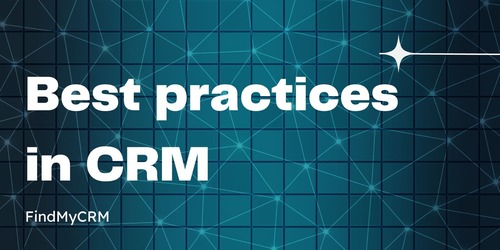
1. Organize client communication and management in one location
You can effectively communicate with your contacts by centralizing customer communications. Look for programs that let you connect your email. You'll be able to use personalized email templates to save time, keep track of interactions, and automatically log emails that have been sent.
2. Automate your sales processes
The sales team spends a significant amount of time on administration. However, a lot of this work can now be automated. Businesses can easily monitor the visibility of sales pipelines and daily activity with suitable CRM software, enabling more timely follow-up and preventing opportunities from leaking through the cracks.
3. Use Ai to improve customer intelligence
The future of CRM systems depends on AI features that help improve customer intelligence. It can be used to analyze client data down to location and interests, evaluate customer needs, identify customer pain points, and much more.
4. Observe the full picture
CRM platforms will become even more useful and efficient with helpful integrations. For example, you can integrate email marketing tools to pull engagement information to specific contacts. Compared to manually updating it, this saves a lot of time. The more integrations that are connected, the more insight there will be, especially when some teams won't have access to specific applications.
5. Make the right technology investments
It becomes essential to have modern software in a business where disruptive innovations enable businesses to outperform their competitors. There are so many different CRM platforms. To make the investment worthwhile, the solution you select must increase productivity and service quality.
[Related Article: 10 Best Free CRM Software]
Prepare for the CRM of the future
So, I hope we managed to answer the question "what is the future of CRM?" and found that more and more customers expect personalized interaction, companies must be able to meet these expectations, otherwise, they risk losing sales.
Your business will be better positioned for the future if you implement a CRM system that can send personalized messages at scale, integrate with your current tools, and automate processes.
